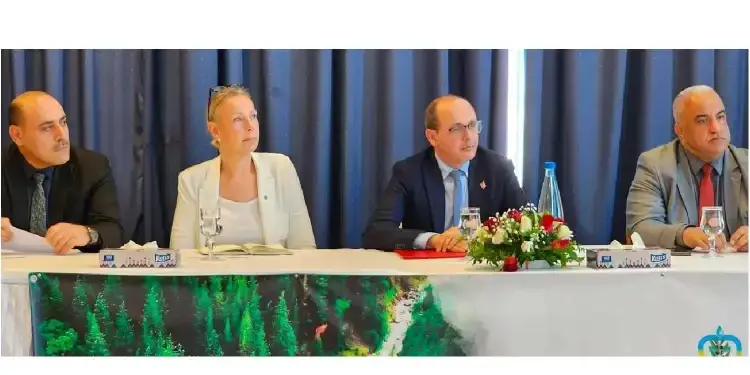A wind of renewal blows on the regions of northwest Tunisian. On April 23, 2025, the Tunisian government officially launched in Tunis Le Péfd (project to promote agroforestry and restoration of degraded forest landscapes), an ambitious project intended to restore degraded forests and to promote agroforestry in the governorates of Béja, Siliana and Bizerte. This program is a clear ambition: revitalize the land and the rural communities that live there.
With total funding of 23.72 million dollars (73 million dinars), this project benefits from major support from the African Development Bank (BAD), which devotes $ 17 million to it via the Strategic Climate Fund. This funding includes low interest credit (1.11 % over 20 years, with 8 years of grace) and a donation of $ 3 million. The Tunisian state provides $ 6.06 million, while the beneficiaries themselves will contribute to $ 660,000.
The decisive turning point took place in June 2024, with the signing of the agreement by the Minister of the Economy, Feryel Ouerghi, and the assistant director of the BAD for North Africa, Malinne Blomberg. Since then, the Directorate General of Forests, placed under the authority of the Ministry of Agriculture, has been piloting the implementation of the project, scheduled until 2029.
In the field, the expected results are clear: 33,200 hectares of degraded forests to restore, the creation of 4,500 green jobs and the training of 42,000 people in sustainable agricultural and forestry practices. The activities envisaged include agroforestry, reforestation, beekeeping, as well as the cultivation of aromatic and medicinal plants. These initiatives aim to diversify the income of rural areas while strengthening their resilience to climate change.
Social inclusion is at the heart of the project, with a third of the beneficiaries being women. In addition, to fight forest fires, an early alert system will be set up to protect vulnerable natural resources.
This project is part of the continuity of ten years of similar experiences, ranging from participatory forest management with development groups (GDAP) to reforestation initiatives supported by organizations such as UNDP or FAO. However, the Perfd is distinguished by its integrated approach, combining ecology, economics and social inclusion, while meeting Tunisia’s climatic objectives, in particular the commitment to reduce the carbon intensity by 45 % by 2030.








